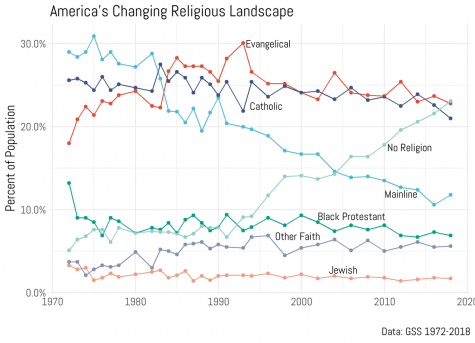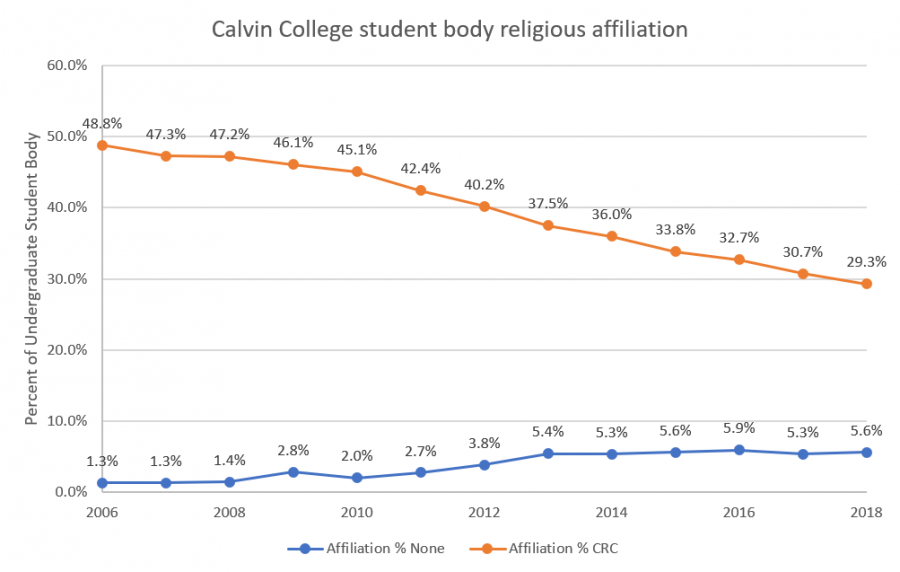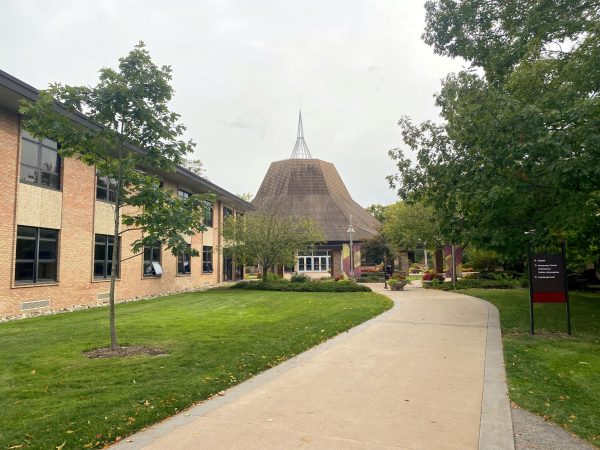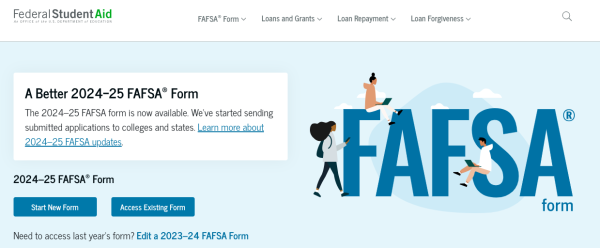The Rise of the “Nones”
People increasingly decline to identify as religious, according to the General Social Survey (GSS), and Calvin students are no exception. The percent of Americans that do not affiliate religiously, the religious “nones”, is statistically equal with both Catholics and evangelicals for the first time. The trend of increasing “nones”, has been noted since the mid-1990s, leading to 23.1% of the American population in 2018. Calvin has exhibited these trends, as shown in the Day 10 reports, though at a much lower rate. The percent of “nones” at Calvin has risen steadily from 1.3 percent in 2006 to 5.6 percent in 2018.
“The one thing we know for sure is that it’s complicated,” Assistant Professor of Sociology Jonathan Hill commented on the data. “A lot of people see a statistic like this and they assume it’s young people leaving the church.”
While the data show increases in the “nones”, Hill notes that this does not strictly reflect spirituality. “If we took a look at just those Protestants who attend church weekly, or about weekly…that hasn’t shifted much at all over this time.”
Hill describes this as a growing divide between those affiliated with the church and those that aren’t. “This is an identity issue… This is [asking] ‘What are you?’… when it comes to religion.”

GSS study showing increase in American religious “nones”.
Looking more in depth at the “nones”, Hill states that “only about a third or so… would actively identify as atheist or agnostic,” while the rest may still believe in a God or engage in spiritual activities.
Though Calvin’s “nones” have been increasing throughout the last 13 years, the population still comprise a much smaller population, at 5.6 percent, than the national average, at 23.1 percent. “Going to college actually keeps people in church; there’s pretty strong evidence of that,” Hill says.
Hill expressed interest in the “nones” at Calvin. “Do they believe that there’s a God? Do they believe in the divinity of Christ?” he wondered. “I could see people saying, ‘I’m nothing, I’m not affiliated’ and meaning ‘I’m not actively involved in a congregation right now.’”
Calvin’s Day 10 reports have also shown a decrease in student members of the CRC. Hill attributes this largely to the diversification of the CRC denomination and changes in social dynamics. “I think there’s less of that distinction, and also less of that sense that you owe it to your children to say ‘Go to Calvin.’” Because of this, young adults raised in the CRC church may find it more acceptable to attend colleges other than Calvin.
However, Hill reacts to the diversity present at Calvin by saying, “I see our students overwhelmingly change in their faith, but often times deepen and mature.”
Hill suggests Christians consider social data from many points of view. He notes that looking at only one data source can lead to a skewed image of society. “Christians should be known above all else as the truth-seekers in all things.”
More information on the GSS survey can be found here. Full archives of Calvin’s Day 10 reports can be found here.









